- Home
- Andrew McGahan
The White Earth Page 5
The White Earth Read online
Page 5
William touched his nose.
‘All right. Good. Now take off your clothes for a minute.’
When William was in his underwear the doctor began to prod and probe him, making his muscles twitch. A stethoscope appeared from the black bag and was applied, freezing, to his back and chest. A small hammer was knocked against his knee. A clammy hand scooped his testicles briefly as he was asked to cough. The examiner hummed and muttered throughout.
‘Okay, you can get dressed.’ Dr Moffat returned to his glass for a moment. Then he addressed William’s mother. ‘Well, he seems perfectly healthy to me.’
‘That’s what I told his uncle. He’s fine.’
The doctor mused.‘You know what John wants.’
‘But what about school?’
‘A few months off doesn’t matter at Will’s age.’
‘Isn’t there a law about missing school?’
‘Not if you have a medical certificate. I can take care of that.’
‘A certificate saying what?’
Dr Moffat pondered some more.‘How about glandular fever? Kids are always missing a year here or there because of that.’
William was dressed again by now, and had listened to the exchange in bewilderment. ‘Is something wrong with me?’ he asked his mother.
She sighed. ‘Of course not. This is just … an arrangement.’
‘You’re going to have a holiday,’ the doctor added. He was pouring himself another drink. ‘For the rest of the year.’
‘Why?’
‘Why not? Most kids would jump at the chance. And this way you’ll have time to get to know the place. And your uncle too. Without having to run off to school every day. It’ll be fun.’
‘Oh.’ William wasn’t sure how he felt about the news, only that he didn’t understand it. Then he remembered something.‘My ear. I forgot. It hurts sometimes.’
His mother glanced at him.‘You never told me that.’
William said nothing. There was an ache that came and went, but he hadn’t told her about it because it was the ear she had hit, on the night of the fire.
Dr Moffat beamed.‘We’d better have a look then, hadn’t we?’
He pulled an instrument with a pointed eyepiece from his bag and inserted it into William’s ear. William winced.
‘Doesn’t hurt that much, does it?’ The doctor was squinting into the eyepiece, and the smell of alcohol was cloying.
William steeled himself.‘No.’
‘Well … it’s a little red and inflamed in there.’ He was talking to William’s mother. ‘Probably just a bit of an infection, kids get them all the time.’
But as he spoke he pushed the instrument a little further inwards, and suddenly an incredible pain ignited deep in William’s ear, making him gasp and pull away.
‘Whoa,’ said the doctor. ‘All right. I’ve finished.’
William’s ear throbbed and twitched hotly, and his vision swam with black dots. He needed to sit down. It felt like someone had stabbed his eardrum with a needle.
‘Does it need antibiotics?’ he heard his mother ask, sounding strangely far off.
‘Keep an eye on it. If it gets any worse … Look, I’ll write you a prescription. You can fill it whenever you like.’
William walked away gingerly, and sat in a chair near the desk. Why did he feel so dizzy? Was that what an ear infection did?
Dr Moffat was packing his bag. ‘I’ll drop Will’s medical certificate down at the school sometime next week. I have to visit there anyway to give a few inoculations.’
‘I thought you were retired.’
‘Oh, I am. But I still do little things like that.’
‘Where was your practice?’
‘In Lansdowne. That’s where I met John.’
‘You’re part of this organisation of his, aren’t you?’
‘Oh yes. Have been for years.’
His mother and the doctor talked on, but William’s attention wandered. He gazed around at the walls. Old photographs hung there, brown and faded under their glass. It helped to fight the dizziness if he focused on them. Faces stared out of the frames, men and women posed stiffly for the camera. People from long ago — William could tell from the clothes. One picture showed a breakfast scene on a sunlit porch, a husband and wife and child seated around a table. Another showed a crowd sprawling across a manicured lawn, the trees behind them hung with streamers.
‘…three or four hundred members by now.’
‘And he runs it all by himself?’
‘Well, there’s a committee that helps. I’m on it myself. But he’s always been the driving force.’
‘And the money, that comes from him as well?’
‘There’re the membership fees, of course, but they don’t cover everything.’
‘I didn’t think so…’
The dizziness wasn’t going away. William’s eyes moved from the photos to a large framed map that hung beside them. The paper was yellow and looked brittle with age. William studied lines and boundaries that meant nothing to him, until at the bottom of the map, in ornate writing, he saw the word ‘Powell’. Landmarks began to fall into place. The Condamine River came winding along the left-hand side of the map. On the right side were the Hoop Mountains. Towards the centre of the frame crept the line of a creek, and along it was a small representation of a building, labelled ‘Homestead and Village’. And across the entire empty centre, in letters so big he hadn’t even noticed them at first, ran the words ‘KURAN STATION’.
‘…this place does better than most, even with things dry as they are. John has money, don’t concern yourself about that.’
‘But the House, it’s so … Why does he keep it this way?’
‘Ah, well now. He did restore this office, when he first moved in, and he certainly planned to do the rest. But then there was the business with his wife.’
‘I only heard rumours…’
Another map hung beside the first, this one on clean white paper. It showed the same region, only now the map was crowded with lines. Roads and railways struck out in all directions, unerringly straight, and between them was a dense spiderweb of thinner lines, marking out numbered allotments and farms of all shapes and sizes. Kuran House was merely an anonymous dot, but a sliver of land around the House had been shaded with pencil. It was long and narrow and ran back towards the mountains.
‘…very sorry to hear about your trouble, of course. Must have been hard.’
‘Yes, it was.’
‘Fire is a horrible thing.’
‘Thankfully we could come here.’
‘Well, I know he’s taken a keen interest in the boy…’
William’s vision blurred and he felt he might vomit. When his eyes cleared he saw an amazing thing upon the wall. He’d thought that its splotched look was due to age, but now he realised that in fact the surface had been used as a giant canvas. The images depicted there had been clouded by years of grime and smoke, but he could make out the suggestion of a white horse, and then others, their legs stretched in a gallop. The horses bore ghostly riders dressed in faded red coats. One of the men held a horn to his mouth. Painted fragments of dogs swarmed. And in the background were green patches of countryside, rolling hills and hedges, and something that looked like the ruins of a castle. William understood that he was looking at a painting of a fox hunt. In England.
‘…and you really don’t feel you can cope without it?’
‘It’s just been too much, since the fire, with William and everything else.’
‘I understand. I’ll write you out a script.’
‘I wouldn’t ask, I usually go to the clinic in Powell, but since you’re here.
‘Of course. Prothiaden, was it?’
‘Tryptanol.’
William turned his head and looked at the wall behind the desk. It took a moment for his eyes to adjust, like staring at a magic picture puzzle, but then he saw another painting, as indistinct as the first. There were white blobs that
he thought must be dogs again, but no, this time they were a flock of sheep. Horses grazed on long grass nearby, their riders leaning easily upon their backs. The colours were different too, brown and muted, and instead of rolling hills and castles in the background, William could discern the vague outline of the House itself. This wasn’t England any more. And off in one corner of the painting, so faded as to be almost invisible, was a collection of shapes recognisable as people only because of their white eyes and teeth. Black men, looking on from the shadows, their expressions impossible to read. Hostile? Fearful?
Phantoms. He blinked and the vision was gone. So was the dizziness, and the pain in his ear had receded. He looked around, feeling as if he had slipped back from a dream. The doctor was scribbling on a prescription pad. He finished with a flourish, then tore off two sheets of paper that he handed to William’s mother.
‘Thank you,’ she said, oddly fervent.
‘A pleasure.’ Dr Moffat glanced happily at William.‘Glandular fever. That’s what you’ve got, that’s what I’ll tell your uncle.’
‘If anyone else asks,’ his mother added, ‘you’re too sick for school.’
‘Glandular fever,’ William repeated, testing the words. He understood that none of this was quite the truth. But on the other hand, why had he felt so dizzy? And what was he supposed to do for the rest of the year, if he wouldn’t be at school?
Then he saw that both Dr Moffat and his mother were gazing at the ceiling.
‘Are you going up to see him?’ his mother asked.
The doctor shook his head, laughed uneasily. ‘I don’t really like it. Those floors aren’t safe. With my weight I’d probably fall through.’
‘So why does he stay up there?’
‘God only knows.’
Chapter Six
WHEN JOHN MCIVOR REACHED HIS TEENS, THEREWAS SOMETHING disturbing he came to understand — many people did not like his father. The sentiment was unspoken but ever present, not amongst the station staff, who would never have dared, but amongst people outside Daniel’s sphere of influence. John sensed it in some of the older and wealthier inhabitants of Powell, for instance — the town councillors, the local solicitors, the editor of the newspaper — and it was as simple as a reticence in their conversation, or a hesitation before shaking hands. A faint revulsion. He had no idea what it might mean. It couldn’t be a question of class. His father’s origins were humble enough, but they were perfectly respectable — he had even been a police officer once. His famous pistol was a keepsake.
Perhaps it was just resentment. Kuran Station had loomed over Powell for decades, dominating its politics and strangling its access to land, so the station manager undoubtedly had enemies. In fact, lately even Edward White’s position in parliament had come under threat. He was a grey widower by now, an old man who rarely ventured beyond Brisbane. The newspapers called him ‘The Last of the Pure Merinos’, and it was not a complimentary title. Edward was seen as out of date. The Darling Downs, the papers said,needed fresh blood, younger men committed to a future of bustling shops and thriving farms of wheat and cotton, not relics of the squatter past tying up thousands of acres with their sheep. But Daniel McIvor had long closed his mind to such talk. Unlike Edward, he was still as hale as ever, and bestrode the plains like a colossus.
Indeed, his own great scheme was ripening. For some years now he had been whispering in Edward’s ear, pushing John’s suit for Elizabeth. At first the old man had resisted. His granddaughter, after all, could surely do much better than the son of his station manager. But Daniel pointed out the deeper problem. Certainly, Elizabeth might marry someone of her own status … but could anyone guarantee that her new family — perhaps city folk — would choose to keep a property that was already unprofitable, and likely only to get worse? And if Edward wanted to find her a husband from a pastoral background, then where was he to look? The other Darling Downs’ dynasties were in poorer shape than his own. No, what Kuran needed was someone born to the place, and passionately dedicated to its survival. Who better than John? And as the years went by, Daniel could see that Edward, growing ever more feeble, was coming round to the idea.
John himself left school at fourteen to take up station work full time, and at fifteen he was maturing into his role. The rest of the staff already looked to him as his father’s successor, and the daughters of Kuran village were making their interest known. But John had no interest in these girls. He was focused on Elizabeth. She spent most of her time now at boarding school in Toowoomba, but he watched her closely during her visits home. He thought she was beautiful, in a remote way, and he certainly desired her; but she worried him too. She remained so aloof. He found it difficult to imagine actual intimacy between them. Did that matter? Perhaps not. He looked at his own parents, and saw no great love between husband and wife. It was the station that mattered, not intimacy. Elizabeth’s prime role would be to confer ownership upon him. And in this, John trusted his father. After all, Edward was almost persuaded, and where her grandfather led, Elizabeth would surely follow.
But then Edward White died.
It was during the 1929 election campaign for state parliament, which in truth had not being going well. Edward was up against a much younger man from the Labor Party, and while the senior White might style himself as a grand old man of the plains, in reality he was just old. Critics had universally attacked his conservatism and denounced his vested interest. Daniel McIvor was there at his employer’s side as always, and yet there was only so much he could do. One afternoon the campaign cavalcade drove out to the little town of Kogan, where Edward was to address a meeting. Not long after they’d crossed the Condamine River, the candidate, who’d been sleepy and vague all day, went into convulsions. Daniel ordered the car to a halt, lifted Edward from the back seat, and, in an attempt to ease the fits, laid him out alongside the road. Edward White expired there in the scrub, several miles beyond the borders of his beloved station.
He was buried at the Kuran Station cemetery, in accordance with his wishes, and the funeral was an event. It was considered that his passing marked the end of an era. The little station church couldn’t cope with the crowd, so the ceremony was held under a great marquee surrounded by extra chairs for the overflow. After the service, a grand wake was held in the gardens of the House, presided over by Malcolm. It was the biggest party he had ever thrown, but there was no joy in it for him. It wasn’t that he mourned his father. If anything, that death had come too late, for Malcolm was no longer young, and he was in ill health. But now, instead of the release he’d been waiting for all his life, he found he was trapped in a new and unexpected fashion.
Hasty arrangements had been made behind the scenes, and a furious round of meetings had taken place between Edward’s allies in parliament, his political staff and, of course, Daniel McIvor. Unlike the other mourners, none of them considered the death of the old man to mark an end, although it was certainly an inconvenience. However, the pastoral cause had to go on. But who was to take Edward’s place on the ballot? The committee settled on Malcolm. He was incompetent, yes, everyone admitted that. But he had the family name, he was the son of the great man, and Kuran Station was, after all, his now. With a properly managed campaign he might still win. Malcolm himself was not invited to any of these discussions, and when told of the decision, he refused in horror. Undeterred, Daniel locked himself and Malcolm in the office one evening, and after a torrid night of persuasion, abuse and (it was rumoured) even physical violence, Malcolm emerged chastened and prepared to accept the nomination.
He announced his candidacy at his father’s wake, to tumultuous, if well-rehearsed, acclaim. It proved to be the sole highlight of his campaign. No matter how gifted his speechwriters, there was no hiding the unwilling candidate’s almost complete ignorance of political matters. Then his incipient alcoholism bloomed under the stress. Crowds laughed at him for his red face, his reedy voice, his swaying walk. Newspapers derided him as the last rotten fruit of a decaying
aristocratic tree. His opponents mocked him as an idiot son better left hidden in the attic, where his father had sensibly kept him. And on the streets of Powell, Daniel’s free beer and intimidation could no longer turn the tide. It was a different age, a different mood, and the result of the election was never in doubt.
For Malcolm it was the last and greatest in a long line of humiliations. He left the station in Daniel’s hands and escaped to Brisbane with his wife. There he drank ruinously for a month and died — exhausted, insensible, coughing up endless gouts of blood — in his hotel room. He was fifty-one years old, and left an unpaid bill of close to a thousand pounds. The death was not noted. His body was transported back to Kuran and quietly buried in the family plot. There was no need for marquees or extra seating, even the little church was not quite full. And so Kuran Station passed to the last remaining member of the White dynasty. Elizabeth had only just turned eighteen, and since leaving school had been occupied with little else but burying her grandfather and watching her father slowly suicide. And in all that time John McIvor had barely spoken a word to her.
Indeed, in the space of a few bewildering months John’s world had been badly shaken. Kuran Station and its owners had always seemed as immutable as sunrise and sunset, but now he awoke to the uncertainty of the station’s future. It was the dark year of 1930, and the economy of the Powell region was plunged into gloom. They were calling it a depression; even worse, some said, than the depression of the 1890s. Streams of men came wandering over the plains in search of work. Daniel had none to offer. He was locked away in the office, growling in frustration as debts grew and commodity prices plummeted. He began to speak of drastic measures, of scaling back on the livestock, and of cutting down on wages and staff.
To John, the fragility of the station’s future only made the place all the more precious. He loved the wide golden spread of the plains, and the hills that swept up smoothly in the east. He loved the herds of cattle and the mobs of sheep straying lazily in front of his horse. He loved the days spent working out amongst the men under the open sky, or camping with them at night, beneath an arch of faultlessly clear stars. He loved the fury of the shearing shed and the way the wool bales piled up, great square blocks of prosperity. Most of all, he loved Kuran House. So solid and secure and rooted in the earth. The tragedy was that, since Malcolm’s funeral, the great stone building had stood empty. His wife and daughter had returned to Brisbane, and so the station lacked what it needed most — a living, beating heart.

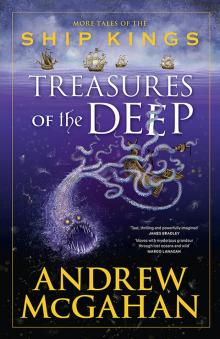 Treasures of the Deep
Treasures of the Deep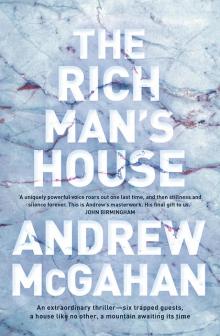 The Rich Man’s House
The Rich Man’s House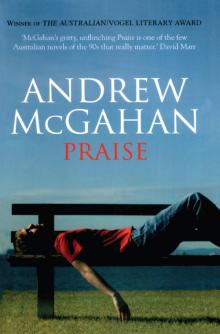 Praise
Praise The White Earth
The White Earth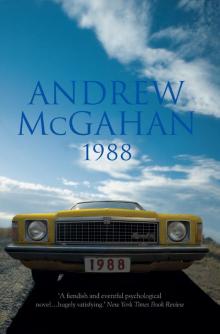 1988
1988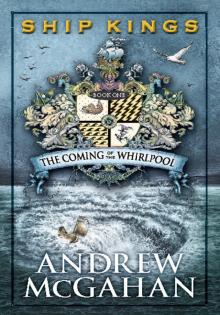 The Coming of the Whirlpool
The Coming of the Whirlpool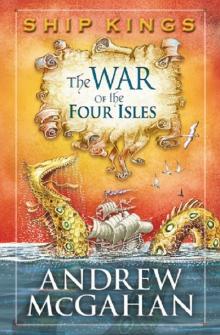 The War of the Four Isles
The War of the Four Isles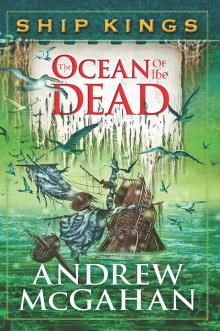 The Ocean of the Dead: Ship Kings 4
The Ocean of the Dead: Ship Kings 4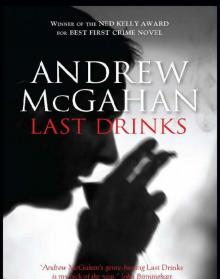 Last Drinks
Last Drinks Wonders of a Godless World
Wonders of a Godless World Underground
Underground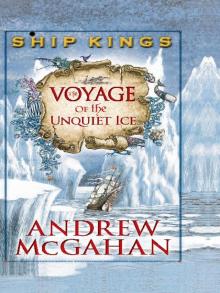 The Voyage of the Unquiet Ice
The Voyage of the Unquiet Ice